第62章 LETTER 8(4)
I am forced to own this,because I remember how imperfect my notions were of the situation of Europe in that extraordinary crisis,and how much I saw the true interest of my own country in a half-light.But,my lord,I own it with some shame;because in truth nothing could be more absurd than the conduct we held.What!because we had not reduced the power of France by the war,nor excluded the house of Bourbon from the Spanish succession,nor compounded with her upon it by the peace;and because the house of Austria had not helped herself nor put it into our power to help her with more advantage and better prospect of success --were we to leave that whole succession open to the invasions of France,and to suffer even the contingency to subsist,of seeing those monarchies united?What!because it was become extravagant,after the trials so lately made,to think ourselves any longer engaged by treaty,or obliged by good policy,to put the house of Austria in possession of the whole Spanish monarchy,and to defend her in this possession by force of arms,were we to leave the whole at the mercy of France?If we were not to do so,if we were not to do one of the three things that I said above remained to be done,and if the emperor put it out of our power to do another of them with advantage;were we to put it still more out of our power,and to wait unarmed for the death of the king of Spain?In awe,if we had not the prospect of disputing with France,so successfully as we might have had it,the Spanish succession,whenever it should be open;were we not only to show by disarming,that we would not dispute it at all,but to censure likewise the second of the three things mentioned above,and which king William put in practice,the compounding with France,to prevent if possible a war,in which we were averse to engage?
Allow me to push these reflections a little further,and to observe to your lordship,that if the proposal of sending the archduke into Spain had been accepted in time by the imperial court,and taken effect and become a measure of the confederacy,that war indeed would have been protracted;but France could not have hindered the passage of this prince and his German forces:and our fleet would have been better employed in escorting them,and in covering the coasts of Spain and of the dominions of that crown both in Europe and in America,than it was in so many unmeaning expeditions from the battle of La Hogue to the end of the war.France indeed would have made her utmost efforts to have had satisfaction on her pretensions,as ill founded as they were.She would have ended that war,as we began the next,when we demanded a reasonable satisfaction for the emperor:and though I think that the allies would have had in very many respects,more advantage in defending Spain,than in attacking France;yet,upon a supposition that the defence would have been as ill conducted as the attack was,and that by consequence,whether Charles the Second had lived to the conclusion of this war,or had died before it,the war must have ended in some partition or other;this partition would have been made by the Spaniards themselves.They had been forced to compound with France on her former pretensions,and they must and they would have compounded on these,with an Austrian prince on the throne,just as they compounded,and probably much better than they compounded,on the pretensions we supported against them,when they had a prince of Bourbon on their throne.France would not have distressed the Spaniards,nor have overrun their monarchy,if they had been united;and they would have been united in this case,and supported by the whole confederacy;as we distressed both France and them,over run their monarchy in one hemisphere,and might have done so in both,when they were disunited,and supported by France alone.
France would not have acted,in such negotiations,the ridiculous part which the emperor acted in those that led to the peace of Utrecht,nor have made her bargain worse by neglecting to make it in time.But the war ending as it did,though I cannot see how king William could avoid leaving the crown of Spain and that entire monarchy at the discretion of Louis the Fourteenth,otherwise than by compounding to prevent a new war he was in no sort prepared to make;yet it is undeniable,that by consenting to a partition of their monarchy,he threw the Spaniards into the arms of France.The first partition might have taken place,perhaps,if the electoral prince of Bavaria had lived,whom the French and Spaniards too would have seen much more willingly than the archduke on the throne of Spain.For among all the parties into which that court was divided in one thousand six hundred and ninety-eight,when this treaty was made,that of Austria was grown the weakest,by the disgust taken at a German queen,and at the rapacity and insolence of her favorites.
The French were looked upon with esteem and kindness at Madrid;but the Germans were become,or growing to be,objects of contempt to the ministers,and of aversion to the people.The electoral prince died in one thousand six hundred and ninety-nine.The star of Austria,so fatal to all those who were obstacles to the ambition of that house,prevailed;as the elector expressed himself in the first pangs of his grief.The state of things changed very much by this death.The archduke was to have Spain and the Indies,according to a second partition:and the Spaniards,who had expressed great resentment at the first,were pushed beyond their bearing by this.They soon appeared to be so;for the second treaty of partition was signed in March one thousand seven hundred;and the will was made,to the best of my remembrance,in the October following.I shall not enter here into many particulars concerning these great events.They will be related faithfully,and I hope fully explained,in a work which your lordship may take the trouble very probably of perusing some time or other,and which I shall rather leave,than give to the public.